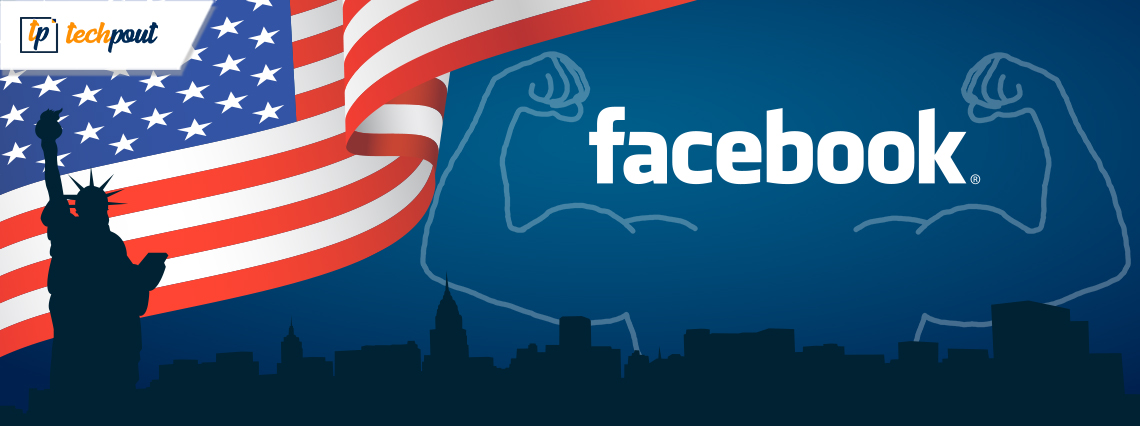72% of Americans Believe That Facebook Has Too Much Power

In the last decade, techcompanies have gotten larger than ever. Of the ten most valuable companies inthe world by market capitalization, the top five were US tech firms. It likelywon’t surprise you that those businesses are Amazon, Apple, Alphabet (a.k.a.Google), Microsoft, and Facebook.
In the dawn of an election year, more Americans than ever worry about data security, particularly from two names on that list: Google and Facebook. Since the Cambridge Analytica Scandal has shot up from less than 30% to over 72%, say that Facebook has too much power. For the first time, only a small percentage of people think that the company even has a positive impact. Others hold a neutral or even cynical view of the tech giant.
Is it the end ofFacebook? Most likely not. But changes are coming soon, and they will impact itand the other tech behemoths.
What’s Wrong WithFacebook?
Both Facebook and Googlehave seen a decrease in consumer trust. But Facebook bears the brunt of thisnegative perception. For one thing, regulators are growing increasinglyconcerned over its size. What most people still don’t realize is that Facebook alsoowns Messenger, Instagram, and Whatsapp platforms.
This is a combined 6.2 billion users or about 81% of people on earth. Even accounting for account duplication, these numbers are staggering.
All this boils down to Mr. Zuckerberg, who controls 60% of the company’s voting shares. The more you dig into it, the more issues you can discover. Facebook didn’t achieve this position through innovation but acquisition. It bought 50 companies for over $23 billion, creating a social media juggernaut with no serious competition.
In the last ten years,no platform was close to competing with Facebook’s number of users. And theonly new competitor this decade was Snapchat.
It’s Not Just Size.It’s How Facebook Handles Data
Facebook controls a vastamount of user data. This information is the backbone of Facebook’s revenuemodel. It sells it to advertisers and, as Cambridge-Analytica revealed, toresearch firms and political actors. They used it to target elections in the USand around the world.
Thus, 3 in 5 Americans don’t trust Facebook to protect their data. And why should they, when their revenue model is dependent on selling data to the highest bidder? Facebook has a continued track record of abusing user data and still hasn’t done much to address these issues.
Changing of the TideAgainst Facebook
Regulators have begun to wake up and take notice of growing concerns. 54% of Americans believe Facebook and other tech companies need better regulation. While an even more significant number, 66% are in favor of breaking up big tech organizations.
Interestingly enough, both liberals and conservatives support these measures. The FTC is stepping up and has begun investigating Facebook and Google over antitrust and other matters. It slapped Facebook with a $5 billion fine for its role in Cambridge-Analytica. Now lawmakers and governments again pay close attention to the company as the next election approaches.
To Be Fair, It’s NotOnly Facebook
Facebook has caught the most attention. But it’s far from being the only concern for both the American people and lawmakers. Microsoft and Amazon have more or less positive reputations. But Google has been hit with several fines. Last year, the company had to pay a record $170 million for violations of Children’s Privacy Laws.
The European Union also hit Google with a 1.5 billion euro fine for violating antitrust laws. It stemmed from over ten years of activities between 2010-2019.
Big tech companiescontrol vast amounts of data, and regulations have yet to catch up. Thegovernment broke up monopolies in oil, steel, and telecom. It will move towardsregulating how large and influential tech companies can be.
And though Amazon andother giants still have high levels of trust, it doesn’t mean they aren’t up totheir own share of privacy intrusions and other concerns.
What Should You Do inthe Meantime?
Let’s say a democrat who supports breaking a big techmonopoly wins the elections in 2020. But it will be years before they enact anysignificant legislation. In the meantime, you need to start taking steps toprotect your online privacy.
The last few years haveseen significant numbers of Americans leaving Facebook. The trouble is that anyform of internet usage involves mass data collection. Even if you decide toquit social media, Google harvests your data in search, Gmail, YouTube, and itsother apps.
While the privacy war rages, all users can benefit from using a VPN. A VPN or virtual private network encrypts your internet connection. It prevents browsing data collection and safeguards your browsing from any outside eyes. Of course, you need to log out of your accounts for it to be effective. But using a VPN (Virtual Private Network) in combination with a privacy-centric browser like Brave or Epic Browser is the best way to surf the web without feeding tech giants with extra data.
You don’t have to give up using search engines either. DuckDuckGo is a search engine with a no-tracking policy that delivers excellent results and doesn’t sell any user data. And if you must use social media, then limit what you share on it. Only post things you wouldn’t mind an employer or someone else finding out about you later. And don’t share anything that could lead to your identity getting stolen.
What’s the Future ofFacebook and Other Tech Giants?
For the time being,Facebook, Google, and other tech giants don’t have much to worry about. Even iftheir US users aren’t growing as quickly, they are expanding around the world.And, the fines they get for privacy regulations aren’t that big.
The hefty EU fine thathit Google last year, for example, represented less than 1% of their revenue.It makes it more symbolic than anything. In the meantime, these companiescontinue to go on abusing user data.
Don’t wait forlegislators to catch up and take action. Start taking privacy into your ownhands.


